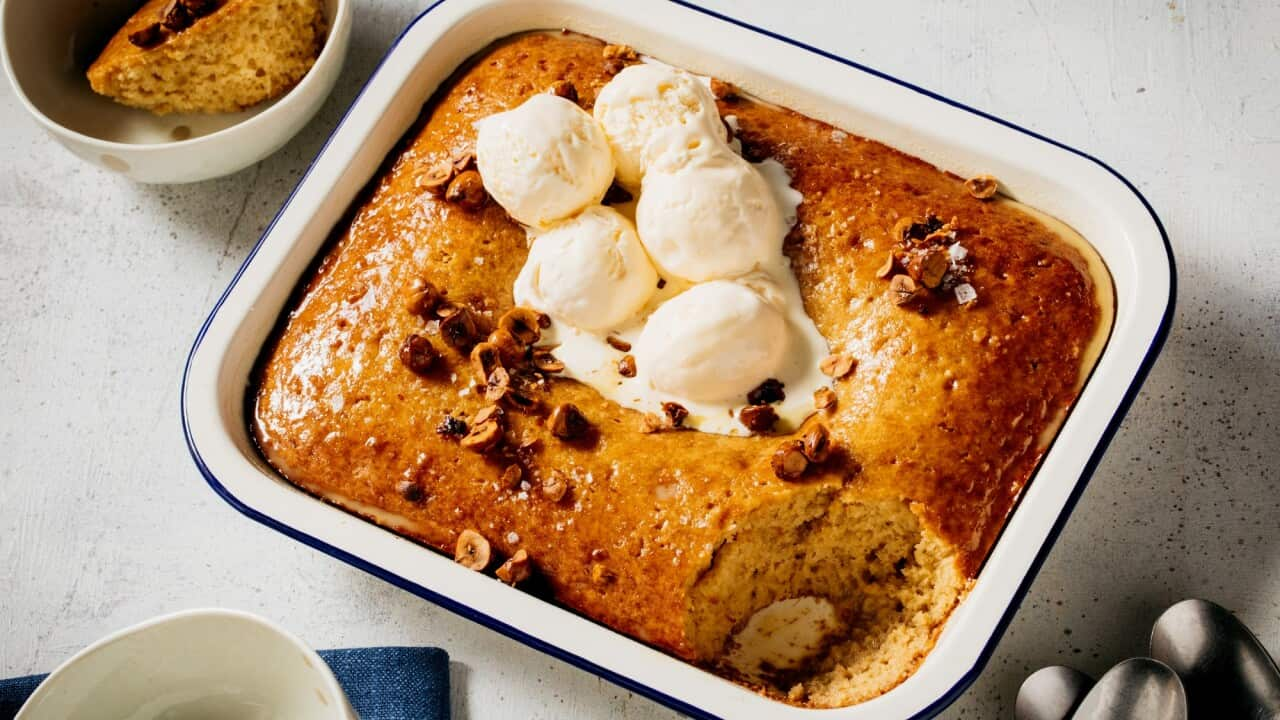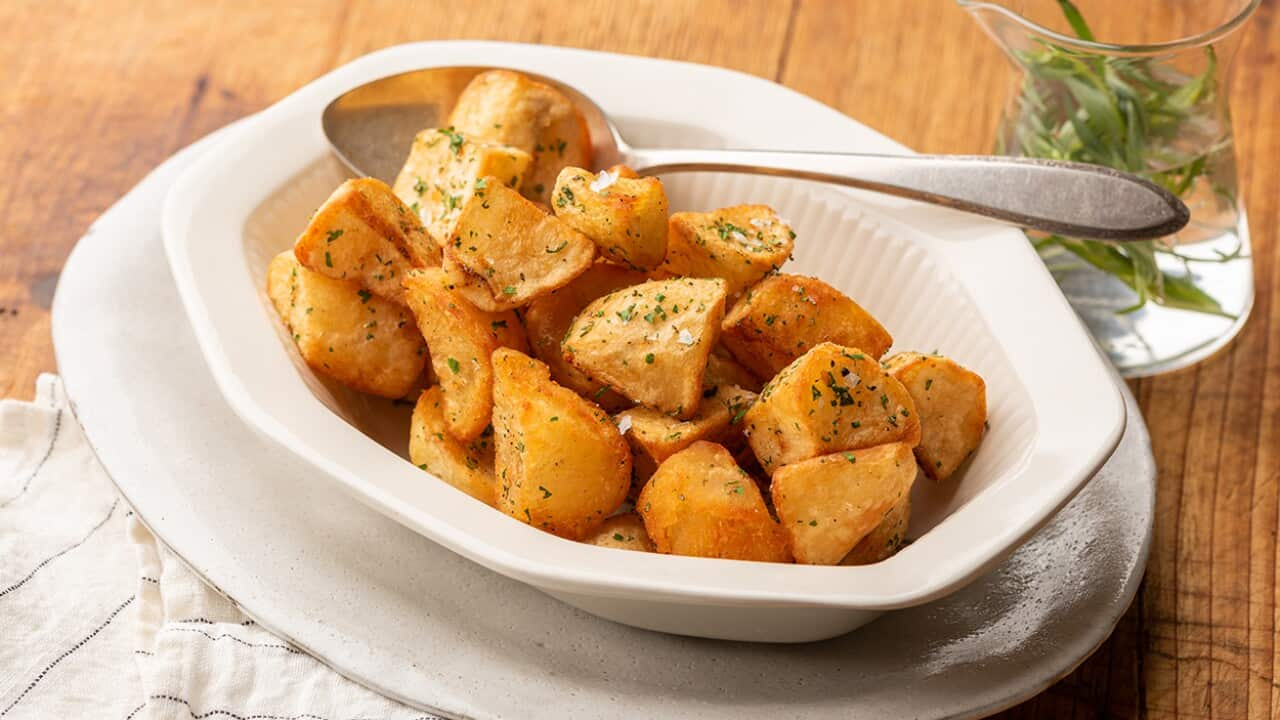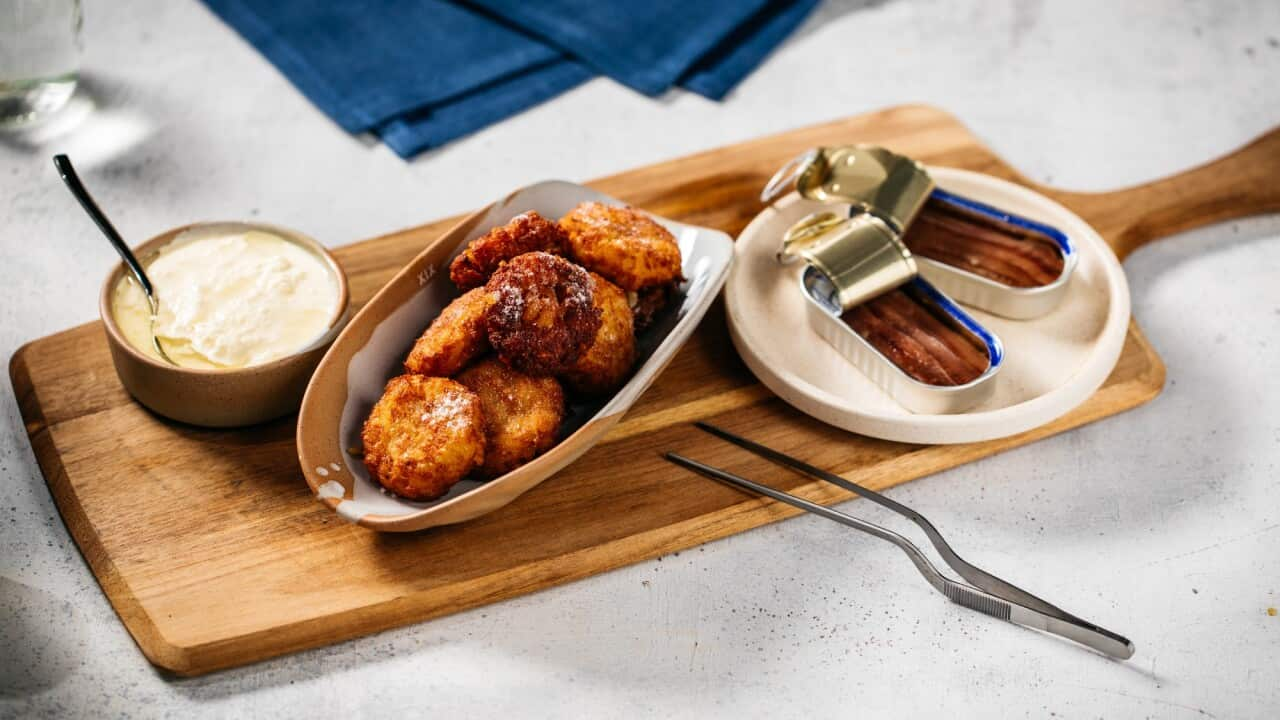--- 's fourth season airs weeknights on SBS Food(Ch.33) at 7.00pm. All episodes available anytime on . ---
Have you ever opened a bottle of wine, not been able to finish it and let it sit on the shelf for a little too long? Have you ever caught a whiff of it and noted how sour it was on the nose? This is what happens after you expose alcohol to oxygen for an extended period of time, allowing it to ferment and become vinegar.
Of course, not all vinegar is an accident. Different types of vinegar are made around the world and used by many cultures.
Some vinegars are used to splash on top of salads and others soften and marinate chicken. They can also help to pickle vegetables and make sauces. Some can even be used for cleaning. Each type has a different flavour profile but all share one thing in common: acidity. Red and white wine vinegar occur after acetic fermentation and, you guessed it, they began as either red or white wine. Like its predecessor, red wine vinegar is stronger than white wine vinegar.
Red and white wine vinegar occur after acetic fermentation and, you guessed it, they began as either red or white wine. Like its predecessor, red wine vinegar is stronger than white wine vinegar.

Vinegar pickles vegetables. Source: Pexels/Cihan Yuce
For the most part, vinegars are interchangeable, if you're using them for an acidic kick. However, each type of vinegar has a different flavour profile and this can affect your dish.
The art of substitution
Adam Liaw, the host of SBS Food's The Cook Up, explains how to substitute certain vinegars for others.
"If you were to use rice wine vinegar instead of black vinegar, I'd probably even add some soy sauce to it or something like that, just to give it more of that savoury flavour and maybe even [add] a bit of sweetness," he says.
If you were to use rice wine vinegar instead of black vinegar, I'd probably even add some soy sauce to it or something like that, just to give it more of that savoury flavour.
If a vinegar already has sweetness, like the balsamic variety, be careful about substituting it for one that's not sweet, like a red wine vinegar. "You would need to sweeten that a little bit more," he says.
Vietnamese food and apple cider vinegar
Melbourne-based Vietnamese chef Duncan Lu thinks apple cider vinegar, which is predominantly fruit-driven, is a great contender for Vietnamese dishes. White vinegar is commonly spruiked in the cuisine, but apple cider vinegar contains a lower acetic acid content, "resulting in a smoother, less sour profile," says Lu.
White vinegar is commonly spruiked in the cuisine, but apple cider vinegar contains a lower acetic acid content, "resulting in a smoother, less sour profile," says Lu.

Vinegar features in Vietnam's nước mắm. Source: Pexels/Quang Nguyen
I've substituted vinegar with apple cider vinegar – to her approval – and now claim it as my secret nước mắm ingredient.
"Mum uses a combination of limes and white vinegar to complete her nước mắm (Vietnamese fish sauce dipping sauce). In recent years, I've substituted [white] vinegar with apple cider vinegar – to her approval – and now claim it as my secret nước mắm ingredient."
It's a good idea to think about the flavours of your dish and which vinegar is best for it.
VINEGAR TALES

Vinegar pudding








